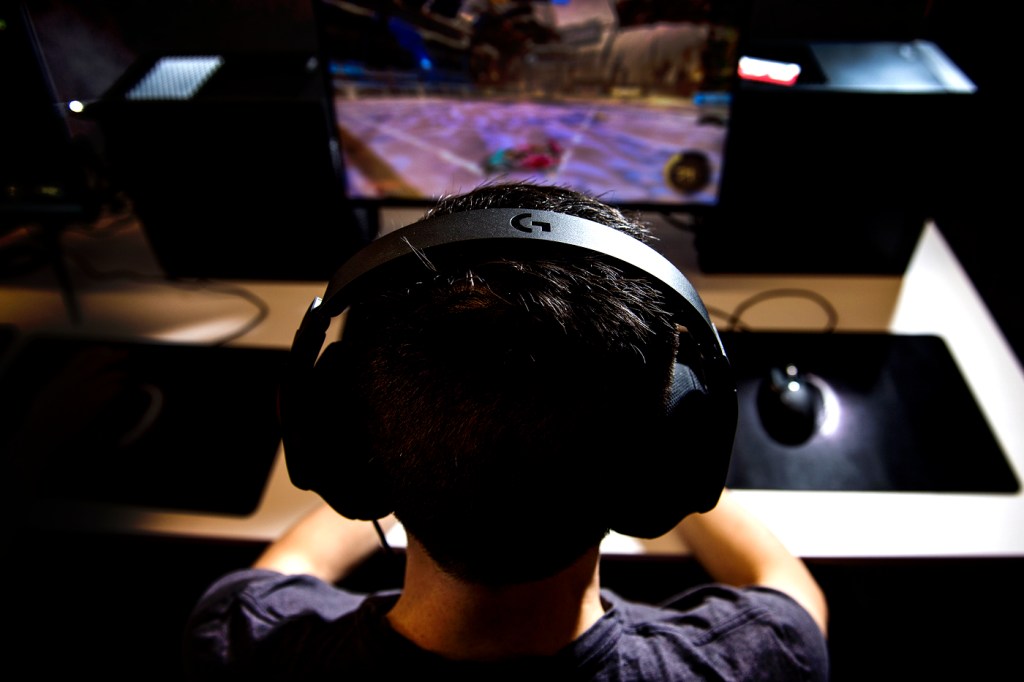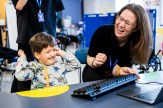Northeastern esports wins national championship in Hearthstone

Overcoming deficits in back-to-back rounds, the Northeastern esports team notched its first national Hearthstone title in the Tespa Hearthstone Varsity Invitational—widely regarded as the premiere collegiate competition for Hearthstone, Blizzard’s popular turn-based card game.
This is now Northeastern’s second overall esports title, after winning the Collegiate Rocket League national championship in 2017, and is the first major victory since the university elevated the esports team to varsity status in May.
The victory also comes after months of uncertainty over whether this year’s tournament would be held or not due to concerns from the COVID-19 pandemic. But once the tournament’s resumption was slated for July, Justin Adams, the captain of Northeastern’s Hearthstone team, said it gave them time to get back into the game and practice since they “had nothing else to do during quarantine.”
Adams and company headed into the mid-July weekend with two tournaments to play—the Tespa Open Invitational on Saturday, which doesn’t require varsity status to compete and hosts a larger pool of teams, and the Varsity Invitational.
The tournaments are played in single-elimination, best-of-five formats with each team bringing in four decks to which the winning team must secure a win with three of those decks.
For the uninitiated, Hearthstone players build decks around one of 10 hero classes, which each come with its own unique style of play, and battle in turn-based head-to-head duels where the objective is to reduce the opponent’s life points to zero. The matches are essentially a tug-of-war—a back-and-forth battle to establish control of the game through the use of minions, or summoned creatures, and spells.
On Saturday, the Huskies clawed their way to the finals of the Open against Texas Tech University, but fell short due to what Adams described as tough matchups, rusty skills, and a lack of communication. Adams says this was the first season that he, Darian Saracevic, and Jason Enright played together as part of the same unit, and that the lack of experience showed.
“It’s like when you hear about sports teams, and how they have a lot of rookies: ‘They’re too young, maybe they’ll be able to come back, get some playoff experience, and do better next year,’” says Adams, who’s studying computer engineering at Northeastern. “That was almost like us, except our next year was literally the next day.”
Saracevic and Enright are both Northeastern students as well. Saracevic is studying finance and Enright computer science.
Heading into Sunday, the two-seeded Huskies changed their game plan—instead of sticking with the aggressive, all-or-nothing strategy of reducing their opponents’ life to zero as quickly as possible (known by players as ‘aggro’), they opted for a more balanced approach, using decks that had more versatility and offered more ways to win.
That decision was put in question immediately, after dropping the first two of three games in the first round, best-of-five matchup against Kent State University. They faced a 2-1 deficit, and a possible early exit to a team that, Adams says, “absolutely walloped” them during their previous matchup in February.
But their approach heading into the varsity tournament was different, Adams says. Their minds were clear, and their decisions were more in sync.
“The previous day, we were all just yelling at each other,” Adams recalled. “So the next day, it was just ‘hey, we’re in this, and we deserve to be here.’ We were down 2-1 and had unfavorable matchups, but we were still relaxed and methodical in our approach.”
Backs against the wall, the Huskies swept the remaining games to a comeback victory by controlling the board early with minions in game four, and holding their opponent at bay long enough to reduce their life total to zero through damage-causing spells.
The Huskies faced another 2-1 deficit in the following round against University of Utah, which featured Micah “Ryder” Tang, and Jackson “Jakaso” Cheleden, two well-known players that have attended professional competitions. But unlike their meeting with Kent State, the Huskies’ two remaining decks held favorable matchups against Utah’s last deck, leading to a decisive series-tying game four, and a come-from-behind victory in game five to advance past the semifinals, besting their record from last year.
Like any classic video game, there’s a final boss. For Northeastern, this came in the form of their finals matchup—the one-seeded defending champions from Rochester Institute of Technology, who were led by Jake “Eggowaffle” Christoforo, a prominent professional-level player within competitive Hearthstone.
“He’s a great individual player, probably the best player on paper in college,” Adams says.
As much as Hearthstone is based on skill and knowledge, there is plenty of luck involved, and the Huskies found some in their game against Rochester.
The Huskies were familiar with Rochester’s style of play, since both teams brought a similar lineup of decks into the tournament. But unlike the previous rounds, the Huskies emerged with a commanding 2-1 lead as Rochester dropped back-to-back games in frustrating fashion—Christoforo and company were unable to draw two cards that are crucial to unlocking the deck they were using, something that rarely happens, Adams says.
This victory, Adams says, has validated the team as one of the best in the country.
“We were playing against legitimate semi-pro players,” Adams says. “We’ve had the confidence to believe that we’re one of the best teams in the nation, even against such strong competition, and it felt great to actually win it—to not just be the bridesmaid, but to finally be the bride.”
Next year, the Huskies plan on bringing back the same roster for Hearthstone. Nick Avery, the associate director of esports at Northeastern, says that based on the experience gained from this year’s tournament and the continuity they will have heading into next season, that the Huskies have legitimate title-defending aspirations.
“They got put in a lot of tough situations where they came back from deficits, but they didn’t back away from their game plan,” Avery says. “I think next year, they can repeat.”
For media inquiries, please contact media@northeastern.edu.





